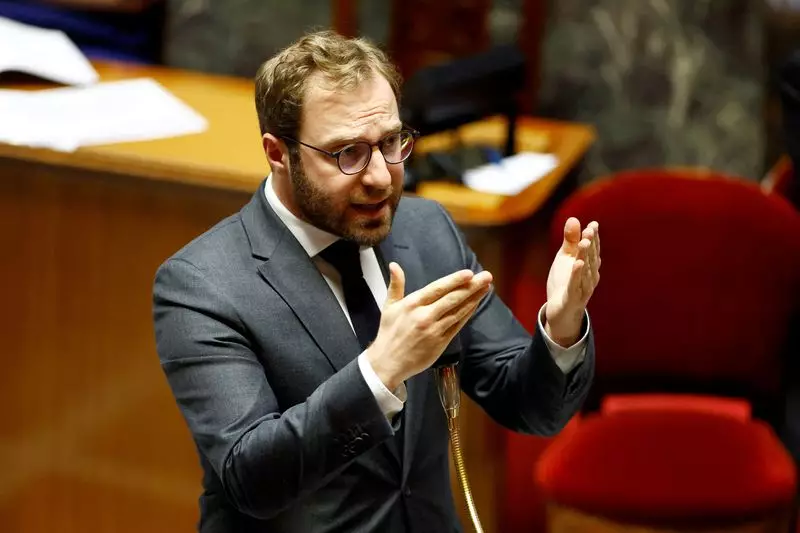France finds itself engulfed in political turmoil, as uncertainty regarding its budget and government stability looms large. This precarious situation, characterized by a potential no-confidence vote against Prime Minister Michel Barnier’s leadership, has significant implications for the nation and the wider European Union. The Finance Minister, Antoine Armand, has underscored the gravity of the moment, labeling it a critical juncture for the nation. As Barnier prepares to address the public, the stakes have never been higher for a government that is already grappling with a growing deficit and waning support.
The anxiety regarding a possible collapse of Barnier’s coalition government is palpable in financial markets, with the stock and bond markets reacting negatively. Political analysts note that should Barnier fall under the weight of a no-confidence motion, it would mark a historic moment as the first French government ousted in such a manner since 1962. The convergence of political alliances, with the left and far right uniting against Barnier, creates a formidable opposition that could catalyze his downfall. National Rally leader Marine Le Pen has openly criticized the government’s fiscal policies, echoing prevalent public sentiments dissatisfied with the status quo.
Barnier’s budget proposal aims to tackle France’s alarming public deficit through a stringent combination of tax hikes and spending cuts, amounting to €60 billion. However, the government’s strategy has been met with fierce opposition. The left and far right’s collective discontent not only poses a significant obstacle to Barnier’s fiscal plans but also raises questions about the future of France’s economy should political paralysis ensue. The ramifications of failing to pass the budget by the December 20 deadline could trigger emergency measures, stripping away essential savings initiatives that Barnier intended to implement.
If the no-confidence vote succeeds, it could lead to a wave of governmental restructuring. Although Barnier might be compelled to resign, President Emmanuel Macron has the discretion to keep him on as a caretaker—an option that could only delay the inevitable. The complexities of such a arrangement might lead to a prolonged period of instability within the government, especially with a snap election being off the table until July. The absence of a decisive governmental direction could exacerbate existing issues and lead to further erosion of public trust in political institutions.
As France navigates this turbulent chapter, the outcome of the upcoming political maneuvers will be pivotal not only for its immediate governance but also for its place within the European landscape. The interplay between budgetary constraints, political alliances, and public discontent creates a perfect storm that threatens to alter the course of French politics significantly. In a month rife with uncertainty, the decisions made in the coming days will resonate far beyond the confines of the National Assembly, shaping the future trajectory of France in an increasingly complex global environment.

